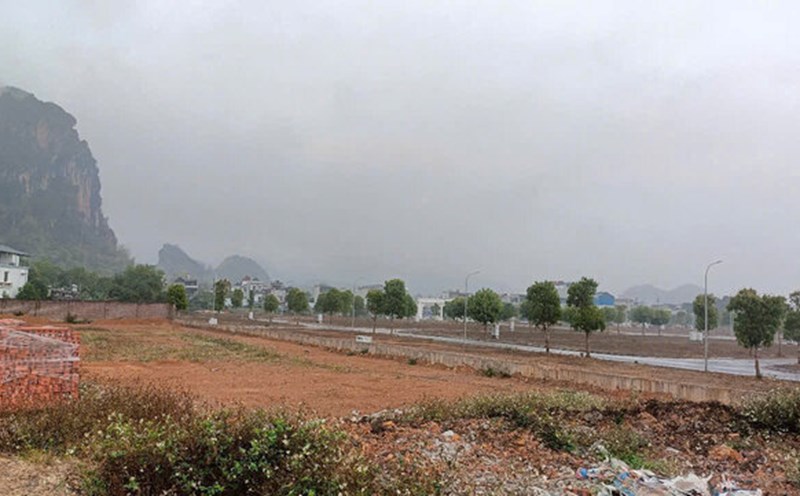Clear changes from policy credit
Over the years, social policy credit capital has become an important " lever", changing the face of the countryside and improving the lives of people here.
Mu Cang Chai district was once famous as the "largest, highest, poorest" place, with nearly 60% of poor households in 2010. However, since accessing preferential capital, thousands of households have had the opportunity to rise. Mr. Mua Chu Vang, H'Mong ethnic group in Rao Xa village, Kim Noi commune, said that from a loan of 8 million VND without interest 15 years ago, his family has expanded livestock and tea farming with a total outstanding loan of 80 million VND. The family currently has a healthy herd of buffaloes and cows, a green tea garden, and a stable income.
Similarly, Ms. Vi Thi Thuy in Tam Vong village, Yen Thang commune ( Luc Yen district) once borrowed 50 million VND to raise breeding cows, grow glue and rice. She currently owns 12 cows and 2.5 hectares of acacia, and has escaped poverty since 2022. Such stories have become popular in mountainous districts such as Tram Tau, Van Chan, Van Yen, Yen Binh...
Mr. Tran Xuan Thuy - Director of Yen Bai Ethnic and Religious Department - affirmed that the implementation of policy credit under Directive No. 40 -CT/TW of the Secretariat is a testament to the interest of the Party and the State to the mountainous people. "The preferential capital to the right subjects, contributing to improving the quality of life and narrowing the development gap between regions," Thuy said.
According to Mr. Dinh Khac Yen - Secretary of Luc Yen District Party Committee, Directive No. 40 is a "mental guideline" for poverty reduction. The poverty rate of the whole district has decreased from 7.06% at the end of 2023 to 2.77% at the end of 2024.
Improving quality and expanding credit resources
Mr. Nguyen Thanh Hai - Director of the Social Policy Bank of Yen Bai province - said that for more than 10 years, policy credit has always accompanied poverty reduction work. The poverty rate of the whole province decreased by an average of 4.13%/year; Tram Tau and Mu Cang Chai decreased by 6.89% and 9.46%/year, respectively. By the end of 2024, the whole province will have 5.68% of poor households (12,575 households), near-poor households will decrease to 2.99%. Notably, 28/59 communes with special difficulties have met new rural standards.
In addition to the strong direction from the government, Yen Bai has also proactively increased credit resources. The province has mobilized capital from organizations, individuals, Savings and Loan Groups, and allocated additional local budgets to the VBSP.
To date, the total capital entrusted from the local budget has reached more than 160 billion VND, an increase of nearly 309 billion VND compared to before Directive 40. Total capital at Yen Bai Social Policy Bank reached VND5,650 billion, an increase of VND2,594 billion (84%) compared to the end of 2019.
Not only increasing capital, but credit quality is also focused on. The system of commune transaction points and 2,323 savings and loan groups in villages helps bring capital to the right subjects and at the right times.
Social policy credit has become a "fishing rod" to help thousands of households in Yen Bai escape poverty and become masters of their lives. Positive changes in income, living standards and poverty reduction rates are clear evidence of the effectiveness of this capital source.
To continue to maintain efficiency, Yen Bai needs to continue to diversify capital mobilization channels, strengthen management, improve the quality of credit services, ensure that all poor people have access to preferential capital - thereby promoting sustainable economic development, ensuring comprehensive social security.











